|
Our therapists at Healing Reflections Therapy wish to extend our care and concern to our community during this time of crisis. We will continue to provide services during the Covid-19 Pandemic, but with alterations to services beginning Wednesday March 18, 2020. We will be offering services via telehealth phone or video conferencing. We encourage you to check with your insurance company to ensure telehealth is covered. During this time, cancellation fees will also be waived due to health concerns in an effort to ensure our clients are making the best decisions for their health, their families health, and the safety of the community.
Check out this Resource from the National Childhood Center for Traumatic Stress for a guide for caring for your family during this time. https://www.nctsn.org/resources/parent-caregiver-guide-to-helping-families-cope-with-the-coronavirus-disease-2019 Follow us for tips on self-care during this pandemic.
1 Comment
Over the past several years I have been collaborating with my colleagues from the National Partnership to End Interpersonal Violence Across the Lifespan: Global Partners for Peace (www.npeiv.org) on how to educate professionals and the community on utilizing pest practices of Trauma-Informed Care. We have been speaking at national conferences like the International Summit on Violence, Abuse, and Trauma (IVAT) in San Diego, CA and Honolulu, HI.
As part of our effort, my Co-Chairs, researcher Dr. Karen Rich, and author Susan Omilian, and I guest edited a special double issue on Trauma-Informed Care for the Journal of Aggression Maltreatment and Trauma. After a long process, the issues went into print this past April and May. We received submissions from countries across the globe and across multiple disciplines including schools, medical settings, law enforcement, and mental health addressing populations such as rape survivors, urban communities, eating disordered populations, and hip-hop dance interventions. Many new advances in trauma-informed care involve combining traditional approaches like policing or medical practice with embedded social workers or medical family therapists. You can read more here for access to the introductions to each special issue: A Trauma Informed Call to Action: Culturally-Informed, Multidisciplinary Theoretical and Applied Approaches to Prevention and Healing, published in Journal of Aggression, Maltreatment & Trauma, Volume 28 Issue 4, is now available for you to access via tandfonline.com. https://www.tandfonline.com/eprint/xp7hATb58iIYt9nwvJU2/full?target=10.1080/10926771.2019.1601144 A Trauma-Informed Call to Action: Culturally Informed, Multi-Disciplinary Theoretical, and Applied Approaches to Prevention and Healing, Part II, https://www.tandfonline.com/eprint/YdxgGXe696q6kBE3F4ub/full?target=10.1080/10926771.2019.1610129 This year at IVATs Trauma conference, we had the privilege of sharing our research along with our co-presenter and new NPEIV co-chair Diana Barnes-Fox. I also co-presented on a Keynote Panel with renowned co-author of the famous ACES study, Dr. Vincent Felitti, along with Child Welfare Advocate Joyce Thomas and moderator Dr. Karen Rich. It is a privilege to work with people so committed to public health, healing wounds, and trauma prevention. I encourage you to join NPEIV at www.NPEIV.org or attend one of the IVAT summits at www.IVATcenters.org if you are interested in violence prevention. At the summit this year some of the survivors of the Parkland shooting held a musical performance, Hawaiian dancers gave an amazing performance at the opening plenary, and famous actor, Vet, Dancing with the Stars performer, author, and trauma survivor JR Martinez served as a Keynote speaker. You will not be disappointed by attending. As many sexual trauma survivors are feeling re-victimized by the political climate, the justice department suddenly made changes the definitions of sexual assault, significantly narrowing it, limiting the ability for victims to receive justice, and reducing the safety of our community. Read more here in a statement from the National Partnership to End Interpersonal Violence.
https://www.npeiv.org/official-statements/rapid-response-to-the-redefining-of-sexual-assault This year has been a big couple years for sexual assault in the headlines: Bill Cosby convicted, Taylor Swift and her sexual assault case, #MeToo, Presidential scandals, Brett Kavanaugh and the supreme court seat, rape kit testing laws being passed, Betsy Devos in the Education Department making changes to Title IX in favor of rights for the accused. As we get further into opening people's eyes to the prevalence of the problem, more and more people are wanting to look away, to decry this as a politically motivated issue, and a growing concern about the status of men, to fear for the men, men saying they are afraid to be alone with women, others saying that the Metoo movement has caused REAL victims to no longer be taken seriously. I have heard that frats of businesses that traditionally supported sexual assault related causes are now shying away, distancing themselves from something they now feel attacked by.
Despite the discomfort that this raises, more and more people have learned of their loved one's trauma histories...secrets long buried are now revealed. People have a greater understanding of the people they are with than ever before, in some cases bringing them closer, other times pulling them apart due to lack of support. However, despite all the talk about sexual assault, there is still so much that people do not understand, most often having to do with consent and the justice system. any people still believe the myth that most rapes are committed by strangers, that there is evidence, that there are injuries, that the case is investigated by police, that rape cases make it to trial, that rapists will be convicted, that most rape accusations are false, that victims have clear memories of what happened, that REAL victims report the crime immediately. No. Just No. These myths are simultaneously exhausting and hurtful. Tonight I heard a great program on NPR's REVEAL that addressed many of these myths through great in-depth reporting. I recommend giving this two part program by Reporters: Mark Greenblatt and Mark Fahey of Newsy and Bernice Yeung of ProPublica a listen. https://www.revealnews.org/episodes/case-cleared-part-1/ https://www.revealnews.org/episodes/case-cleared-part-2/ While we are on the subject of consent, check out this amazing third grade level explanation of consent that could make the world a better place if everyone had this in school. https://www.instagram.com/p/BqLoW_rBeLD/ Several of the trauma and sexual violence conferences I have attended this year have brought up the MeToo movement and where we are headed next. With Google execs walking out over sexual harassment policies protecting the accused and forcing victims into arbitration, we are seeing one angle that needs to be addressed. Along with this there needs to be more attention paid to Non-Disclosure Agreements (NDAs) and how they too serve to protect the perpetrators, not the victims. Indeed, there were multiple cases that came to light this year with high profile politicians, media giants, and actors and producers whose abuses were allowed to continue due in part to NDAs. Not only do NDAs use secrecy that protects perpetrators, but this silence is also particularly a malignant cancer for victims. Trauma therapists have long known that a primary factor in healing is the ability to tell one's story and receive support for it. NDAs deny this to victims. On other fronts, groups like Equal Means Equal have been working on ratifying the Equal Rights Amendments to get equality for women and men formally recognized in the constitution...a job started in the 1970's. With recognition of the ERA, it would strengthen the ability for prosecute sexual assault related cases. With more places like Missouri enacting strict legislation about handling and testing of rape kits, there are bound to be more changes in the justice system ahead.
I was recently interviewed about my work as a Sexual Trauma Therapist on Angela Skurtu's AboutSex podcast. Angela is a Marriage and Family Therapist in the St. Louis are who recently published a book on Infidelity. She and her husband Josh have a podcast about sexual related topics. Tune in to hear my recent January interview about sexual trauma.
https://www.podbean.com/media/share/pb-5wkhk-852edc While attending a recent training with the COCAN network in St. Louis, I was reminded of a few sexual Ground Rules that are used in group treatment for Children with Problematic Sexual Behavior. Given the current political climate and wave of people reporting their prior sexual trauma experiences, it seems that a reminder of basic rules may be a good starting point for boundary discussions with adults about non-consensual sexual behavior as well. These might be some basic rules to follow for appropriate sexual behavior when you do not have enthusiastic consent with another adult. If you violate one of these rules with a co-worker or someone who is not your consenting partner, you may be at risk of inflicting trauma on someone else.
1) It is not OK to touch other people's Private parts 2) It is not OK to show your private parts to others 3) It is not OK to look at other people's private parts 4) It is not OK to use sexual language or make other people uncomfortable with your sexual behavior 5) It is OK to touch your own private parts as long as it is in private and doesn't take too much time. It has been almost a month since #MeToo flooded social media. Since then, almost a daily parade of new sexual harassment, abuse, or assault allegations are being brought to light about accused perpetrators like Harvey Weinstein, James Toback, Charlie Sheen, Louis C.K., Ed Westwick, Roy Moore, and Kevin Spacey. The responses by the accused have varied from silence, to deflection, to admission, to outright denial.
Some statements have puzzled people, wondering how could they not know what they were doing was wrong or would upset someone else? Sadly, this relates to a concept frequently found in my therapy practice, in which many victims are astounded when they realize that their rapist doesn't know he is a rapist. After the assault the perpetrator may act casual, inviting them for breakfast, acting affectionate, kiss them, or invite them on another date. They behave as though what had occurred was completely consensual despite the fact that moments or hours before they were holding the victim down, whispering threats in the victim's ear, ignoring the victim's cries of pain or profound lack of interest or engagement, or ignored the fact the victim was intoxicated, passed out, or vomiting and while they pursued sex. Sometimes the victim will run into the perpetrator months or years later and be astounded at how "normal" they act. They may approach them like friendly, long lost friends seeking to engage in polite conversation. They may reach out to the victim over social media with casual "hellos" and "how have you beens?" The victims may react in paralysis, fear, or rage and are additionally astounded when they see the look of confusion reflected in their perpetrator's face. The victim/survivor comes into my office begging the question: Is it possible that my rapist does not know he raped me? Sadly, in some instances, the answer may be yes. For those that lack empathy, awareness of others boundaries or feelings may not exist. The default is: if this benefits me, my actions are ok. Lack of empathy can be the bi-product of someone in a status of power or privilege, "Just boys being boys," "locker room talk," or "old school." For other sexual violence perpetrators, they may have a sense, if not clearly know what they did was wrong, but use elements of denial, minimization, deflecting blame, or manipulation to escape any form of personal accountability to seep into their conscious awareness. Is it possible that some of these celebrities really did not know that what they were doing was wrong? Well, since they kept the secret and did not exhibit those behaviors in public, then probably on some level they did know. I would argue that they probably were in a position that did not serve them well to think it was wrong. "He/she really wants this," "They deserve this," "I deserve this," "They like how it feels," "Everybody does it" are all arguments used to justify sexual violence. Think of it this way: if you were about to step on an ant and crush it, you would probably tell yourself that have good reason to do so, that it won't matter, that they cannot feel anything, that you are really being helpful...but you can do this because essentially you see the ant as significantly less powerful and less important than yourself. At least if you think about killing a shark you may still justify the kill, but you will still probably worry about the consequences to yourself because the shark is inherently more powerful. Power, control, status, privilege, and lack of empathy play important roles in supporting rape culture. When way are so inundated in rape culture, like a lobster in pot slowly brought to a boil, we may not even realize we are in danger of becoming the next meal because the environment around us was already so unhealthy in the first place. Recently, we have seen a flurry of news scandals relating to sexual harassment and sexual assault such as with several prominent politicians, Bill O'Reilly, Bill Cosby, the DJ in the Taylor Swift case, Kesha's producer, and now Harvey Weinstein. In the wake of the Weinstein scandal, when daily claims of different celebrities and other aspiring actresses being sexually harassed and assault mounted, the #MeToo was popularized by Alyssa Milano as a means for individuals to speak out about sexual harassment and sexual assault so that people could get an understanding of the depth of the problem.
As a sexual trauma specialist, people have asked me my thoughts about #MeToo, in some cases in hopes that I would support their disapproval. I have heard the controversy that it should only be for men. I have heard people claim that the movement minimizes "real" trauma experiences. I have heard the criticism that it shames people for not speaking out or that people are being judged for not using #metoo, and in some cases there has even been a backlash of #notme in response. Sexual violence continues to exist because of the silence and the complicity of silence that surrounds it in the culture. Survivors do not feel safe sharing their secrets, because the culture does not allow them to feel safe enough to do it. Often the most severe symptoms people experience in relation to their traumatic experiences dissipate once survivors speak out about their victimization and are able to let go of the burden of secrecy. Secrets tend to be a source of shame. I celebrate with those that are able to speak out and simultaneously my heart hurts for those who may be in very real circumstances that keep them from safely sharing their stories. They may not have had choice over their victimization, but they do get to choose when and to whom they share. Women and Men speaking out with the #metoo breaks the silence that surrounds and sustains sexual violence. It allows women and men to see that they are not alone. It is empowering to those that bravely share their stories and receive the support of a community of other survivors, who are then inspired to share their own stories. Watching the newsheadlines break of Ashley Judd, Rosanna Arquette, Kate Beckinsale, Gwyneth Paltrow, Mira Sorvino, Claire Forlani, Heather Graham, Angelina Jolie, Rose McGowan, Terry Crews, James VanderBeek, America Ferrera, Reese Witherspoone, Jennifer Lawrence, McKayla Maroney and many others was both heartbreaking and inspiring to see what a watershed moment this was. The damn was broken. The possibility for change and the promise of healing awaits. Indeed, Reese Witherspoone gave a speech at Elle Women awards this week and was quoted as saying "I felt less alone this week that I have ever felt." It does not matter whether a person experienced sexual harassment or assault or rape, the point of #metoo is that no one should have to experience any of those things. Every form of sexual violence is "real." It impacts one's self esteem, confidence, sense of safety, identity formation, their beliefs about themselves, and their overall health. I recall a professor once who gave the account of being french kissed as a teenager by parent that was taking her home after a babysitting job. She polled the classroom and asked the class is we thought this was sexual abuse (It is). A few of us uncomfortably raised our hands. She stated that she did not think it was because it was disrespectful to other survivors who had it worse. Today, when I am going through worksheet with definitions of child sexual abuse with clients, my awareness of tongue kissing on the same list with vaginal penetration takes me back to the memory of that moment in class when I saw a woman struggling so much to come to terms with her own trauma, that she felt compelled to poll her classroom to tell her she was not a victim. I see this all the time as a therapist, new clients who are struggling to come to terms with their own victimization will often enter my office telling me that they do not think they "belong there," that they are taking up the space of someone who had it "much worse" than them, but in truth these are all just ways of minimizing their own experience. What they are really saying is " I do not want to see myself as a victim." To realize that means you admit you were powerless at the time of your victimization, which implies that you cannot control everything. This, in turn, is scary knowing that the world is an unpredictable place and that bad things can happen to good people. Shaking someone's worldview is tough. Helping someone transition from seeing themselves as Victim, to Survivor, to Thriver is ultimately our goal. It helps to remind people that trauma is trauma, it does not matter what form of sexual violence happens to someone, or how one perceives it, none of it is ok. To critics that suggest that #MeToo is only for women, remind them that 1 in 6 men experience sexual violence before they are 18. Although women are at higher risk of sexual violence throughout their lifespan, arguably men face even more stigma around speaking out due to cultural beliefs about masculinity and myths about sexual orientation. Men experience the same trauma symptoms as women. Bottom line: Sexual violence is never OK. Any movement that gives people the courage to share and get support and validation, should be praised. We cannot change a problem in our culture until we acknowledge that a problem exists. There are people in powerful positions preying on other people and they need to stop. This week we took a step forward by bringing the secrets of the perpetrators' wrongdoing to light. Megan Garza, MA, LMFT 2011011850 MO Sexual Trauma Therapist |
AuthorSMegan Garza, MA, LMFT is a certified Specialist in Treating Trauma at a Supervisory level and is Licensed as a Marriage and Family Therapist. She specializes in work with sexual abuse survivors. Archives
August 2023
Categories |


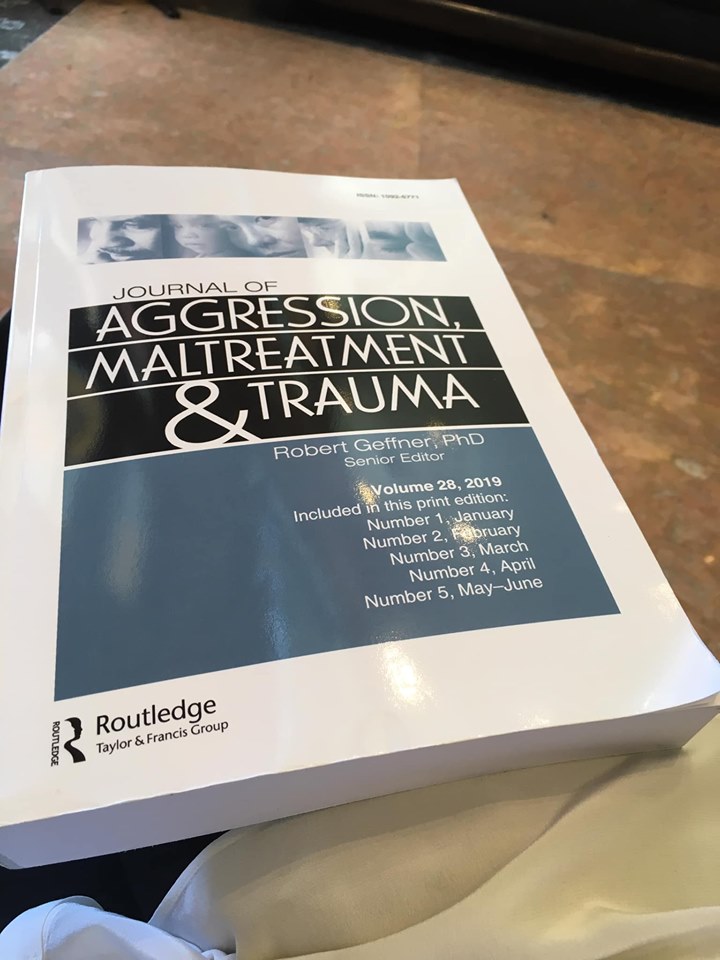
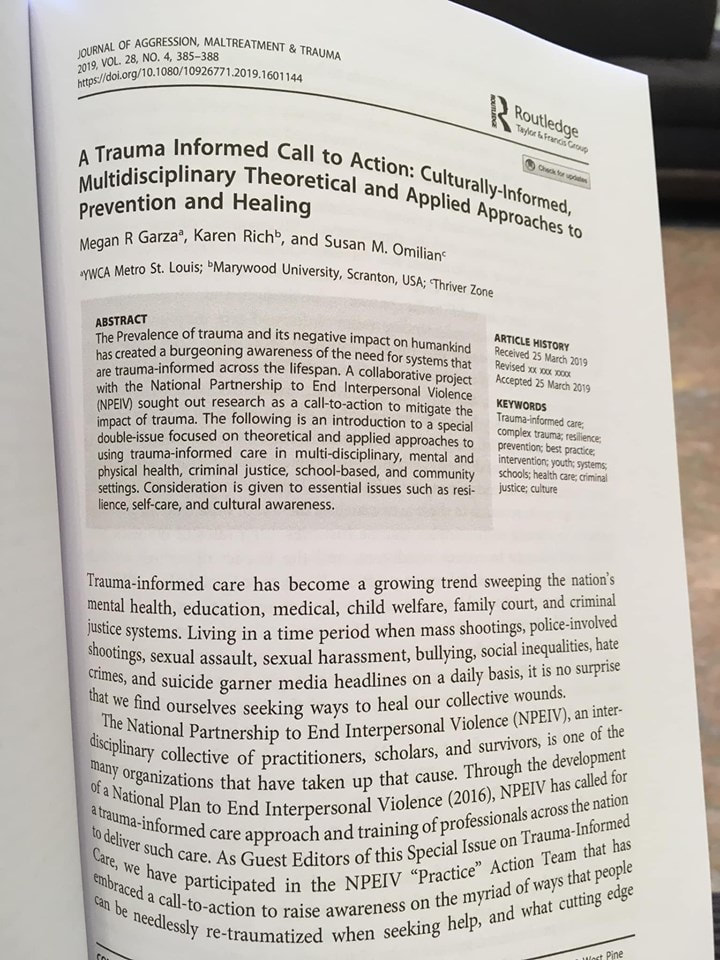
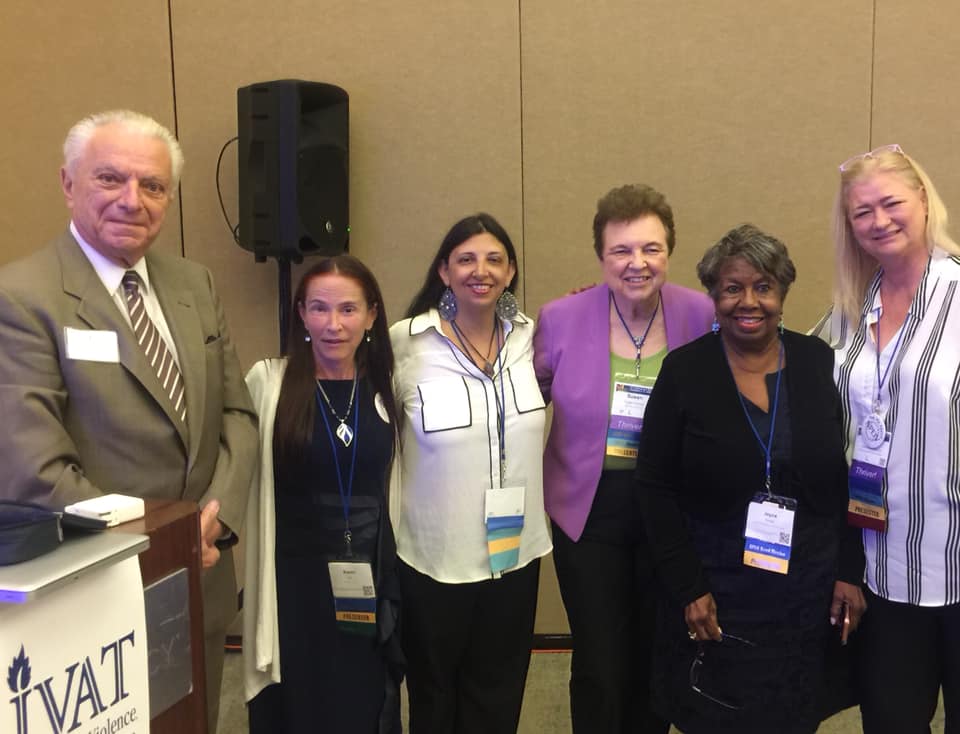
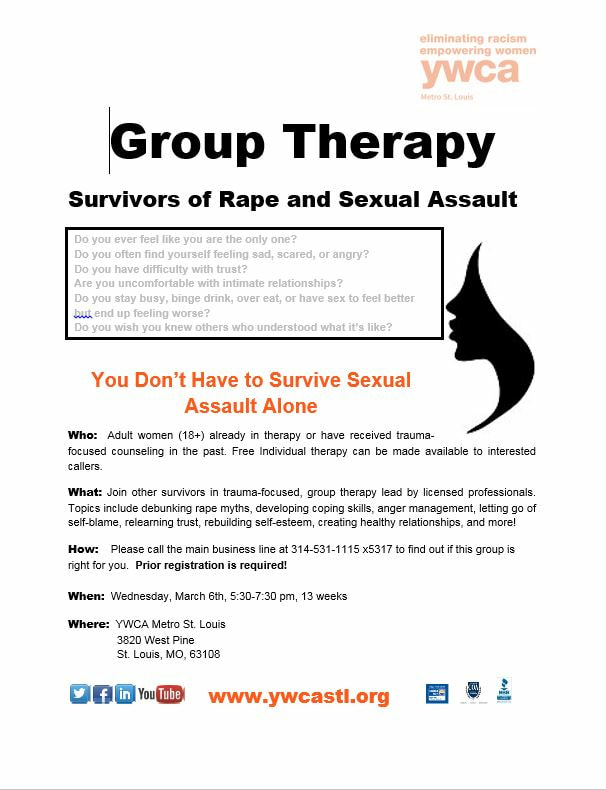
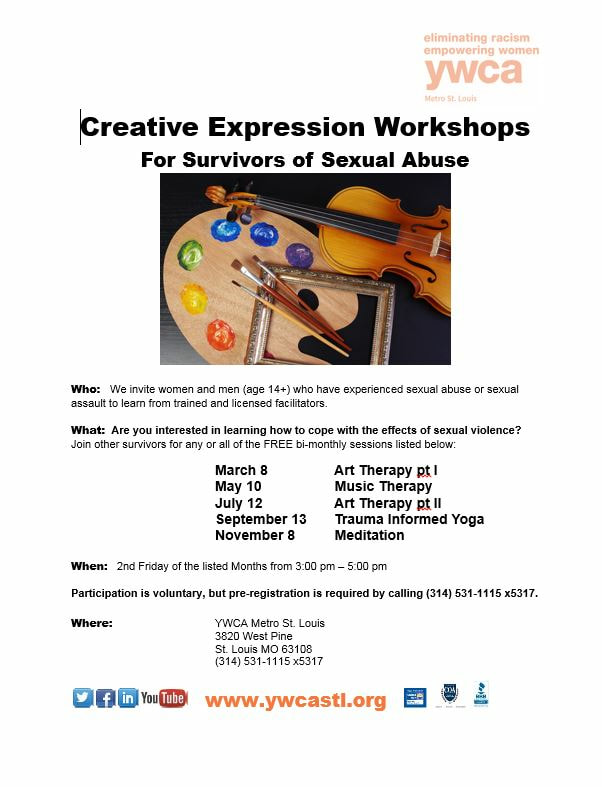
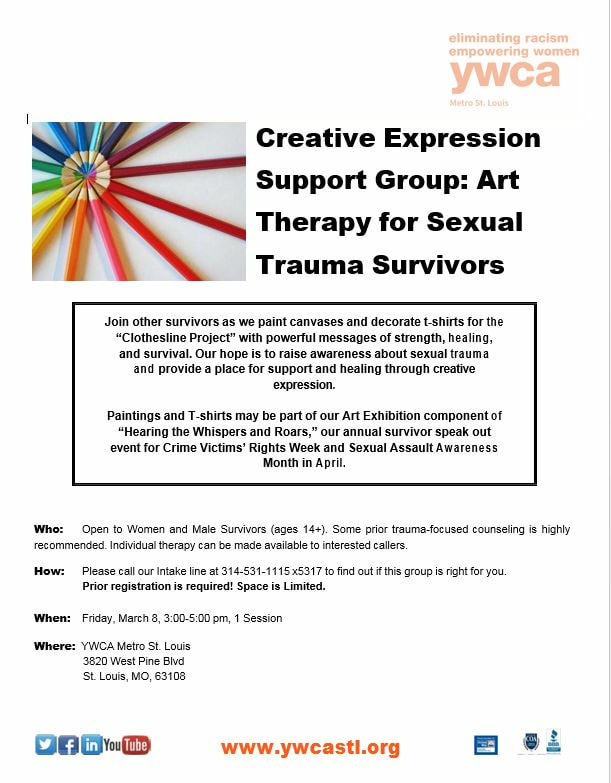
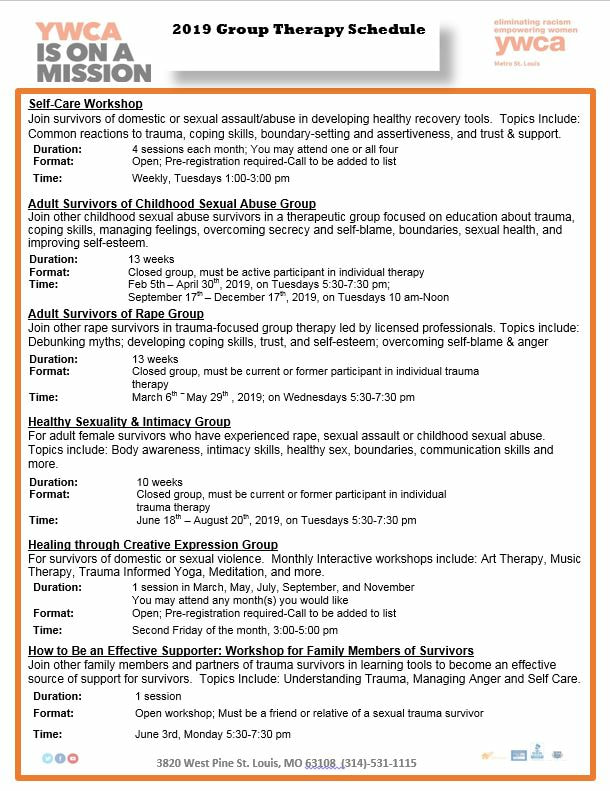
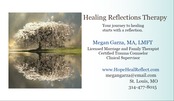
 RSS Feed
RSS Feed